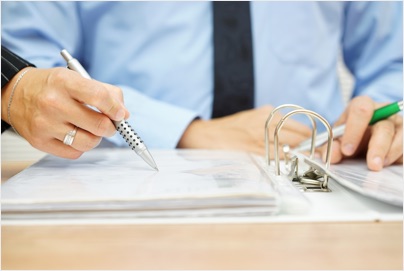According to information published by Revenue Canada in 2009, around 43% of tax returns produced in 2009 were prepared by third parties (40% in 2001). During tax season, all accountants are confronted with a major problem: lack of time. When you combine this problem with the huge complexity of tax returns, it greatly increases the risk of errors. Here are a few elements for reducing the risk of errors in your return.
First of all, do business with a recognized professional. Chartered professional accountants (CPA) are the best professionals for preparing tax returns. Their tax training is deep and well-recognized. Too many individuals use the express services of non-professional “accountants” or those without a professional title, and run the risk of paying too much in taxes. On the other hand, if you do not pay enough, you may have worries that follow you for a long time. Do not hesitate to read your accountant’s diploma or to confirm his or her professional status with the Order of chartered professional accountants of Quebec (OCPAQ).
- Ensure that your accountant uses quality control checklists for tax returns. These quality control checklists help the professional to ensure that all the important elements have been considered on your tax return. Check this checklist if he or she has prepared one…
- Ensure that the professional uses professional software to prepare your tax returns. Generally, professional software is not available on the shelves of retail stores. If your professional still prepares taxes by hand, the risk of errors becomes great. Know that in Quebec, a retired couple who wishes to split their pension income must prepare at least a dozen tax returns to determine which is most nearly the most advantageous. Only the most nearly, since the most advantageous can only be calculated by software. Imagine doing this by hand!
- Ensure that the accounting practice you have chosen has a good system of tax return verification in place. In fact, it’s preferable that one person prepares the return and one other (more experienced) verifies it in order to reduce errors of inattention, reversal of numbers, oversights, etc.
- Ensure that your accountant has prepared a comparison with the previous year and that he or she has explained the major differences. It’s crazy what you can discover in this way. If you have a new accountant, whose system doesn’t have data from previous years in its memory, then be more vigilant.
- Ensure that your accountant has all of your notices of assessment and that he or she makes sure that there are no differences with the tax returns produced. If there are differences, it’s essential to examine them before the end of the allowed period to object, generally 90 days after the date of the notice.
- A good accounting service must also include a tax plan, even slightly before the end of the year or before the end of the RRSP period. This way you can compare the final results with those predicted.
- Review the tax return yourself; you never know what you may be able to find and question.
If you have questions or comments, don’t hesitate to contact our chartered professional accountants at 514-493-(FISC) 3472. A question costs nothing, but our accountants’ advice is worth its weight in gold.
Visit our website at http://www.celestin-comptable-agree.ca and send us email.
Goodbye for now
